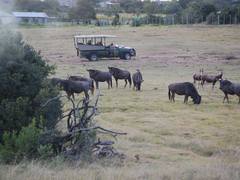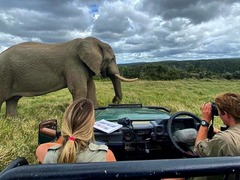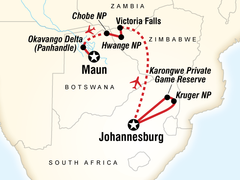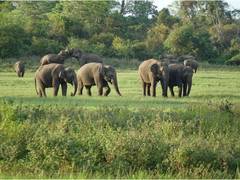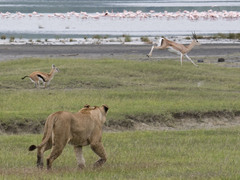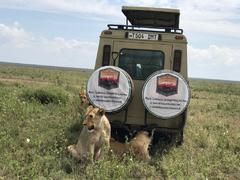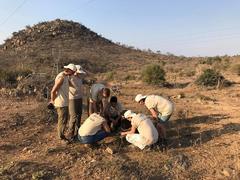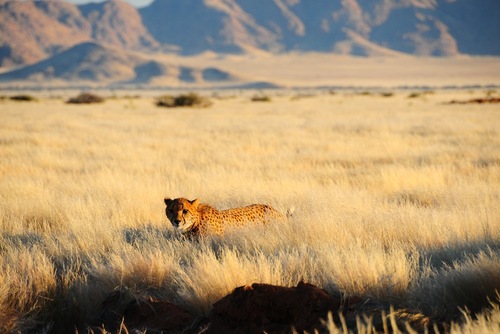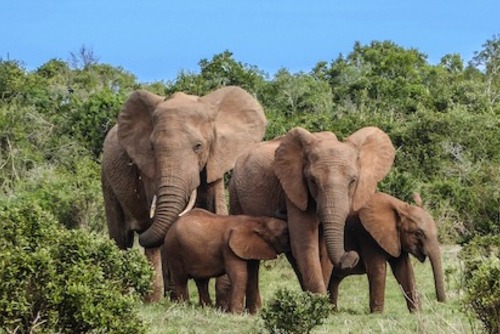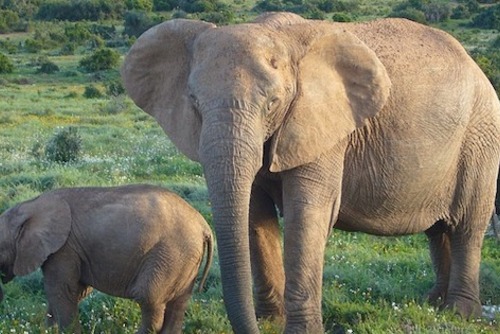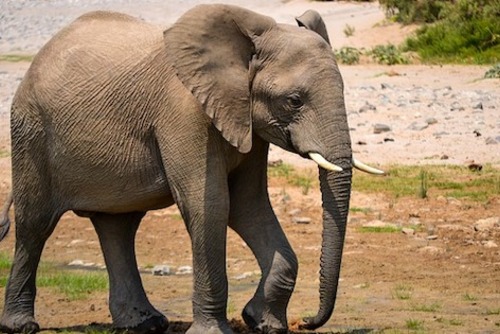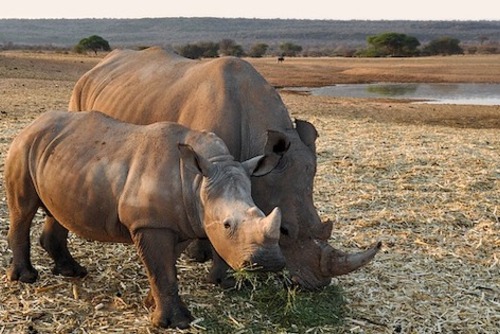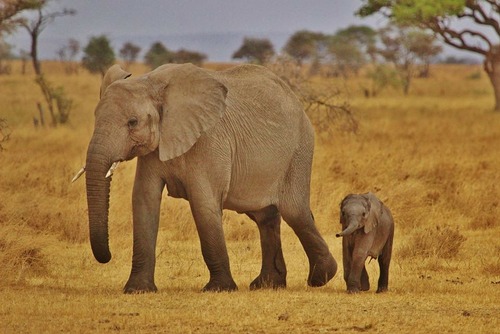This is a project that actively does wildlife research on various wild animals. We are currently researching several wild carnivore species and mega herbivores at the spectacular Entabeni Game Reserve! Get close and personal with some of Africa's unique wild animals.
Become part of our exciting project and you will work with the professional Game Management Unit of the well-known Entabeni Game Reserve. They are responsible for the management, conservation and research of the reserve's wild animals. Endangered and vulnerable animals need daily monitoring in order to ensure their well-being and the overall conservation of these animals. You will be facilitated by the resident Research Officer and will be involved with the daily tracking (using radio telemetry) and monitoring of:
- Cheetah (endangered species)
- Lion
- Spotted hyaena
- Elephant
- Rhino
- Ox peckers
- Any other conservation activities that might be conducted during your stay
You will see various antelope, bulk grazers and predators daily as we drive around searching and monitoring the studied animals. There will be great opportunities to take photographs of various animals and spectacular landscapes. Data and information needs to be gathered by observing these animals. University students are very welcome, please state on your application that you are a student and any specific interest and objectives that you may have.
A maximum of four volunteers at a time can be accommodated at Entabeni. The small groups ensure that everybody will be actively part of the various wildlife research activities being conducted. Money generated from the volunteers' participation is used for the research projects expenses such as tracking equipment, camera traps, diesel and other expenses.
By joining our research team you will contribute to the overall conservation of these magnificent animals. Your contribution will enable us to expand the research project and will make it possible to include other large predator species in our research such as leopard and brown hyaena. If people can better understand what limits these animals' distribution in terms of interspecific competition, we can conserve them even better as their natural habitat becomes smaller and more fragmented!
Location:
We have a tented research camp at the legendary Entabeni Safari Conservancy, Limpopo, South Africa. All the research projects are conducted at Entabeni. The Reserve is a 11 300 hectares, situated in the World Heritage Waterberg Biosphere. The word Entabeni means "The Place of Mountain".
The topography is spectacular, consisting of mountains, cliffs and plateaus! In turn, the diverse topography give rise to different habitats like grass plains, wetlands, forests and bushveld. This is home to the Big Five (lion, leopard, rhino, buffalo and elephant) and also cheetah. Entabeni is a malaria-free area, situated only three hours' drive north of Johannesburg.
Accommodation:
The tended camp comprises out of six safari canvas tents (size: 3 man tents), dining area, toilet facilities with hot running water and a barbeque area. The camp is located next to the Game Management Unit office and their accommodations.
Rates:
Join our research team at Entabeni for two consecutive weeks for ZAR= 7500 (American $=620, Euro=570, Pound=408). This will include all guided research activities, such as tracking and locating lions, cheetahs, hyaenas, elephants and rhinos , observing and documenting their behaviour and locations. The price also includes accommodation at Wildlife Research Africa's tented camp on Entabeni. Food will be provided but the volunteers are responsible for their own food preparation.
If you want to stay another week after your two weeks it will be ZAR = 5 000 per subsequent week if we can accommodate you and the camp is not fully booked. Students may get discount, depending on the time period they wish to book.
Contact us if we need to organize transport for you (airport pick-up), otherwise you can use public bus transport. Buses travel every day from Johannesburg to Mookgopong or Mokopane, Limpopo, where we can pick you up (only 30 minutes away from our camp).
Rates Include:
- Accommodation in the tented camp.
- Food are provided (Volunteers must prepare their own food).
- Large carnivore research and conservation activities.
- Mega herbivore research and conservation activities (elephant and rhino).
- Any other research and conservation activities that might be conducted during your stay.
- The overall once in a lifetime experience!
Typical day:
The normal day will start with quick breakfast and coffee at camp. After breakfast we will head out to find the lions with our telemetry equipment. If the lions can be located we will spend time with them and try and follow them if they are active and behavioural data will be gathered. Then we will go back to camp and prepare lunch. An hour or so after lunch we may track the cheetahs and document their location and any other behavioural data. After spending time with the cheetahs, other species (hyaena, rhino or elephant) may need to be located. Then it is back to camp to prepare dinner around the campfire with the nocturnal African bush sounds as background (lions, jackal and hippo are heard almost every night at camp).
Our mission:
We do vital research on various large predators and monitor others mega herbivores such as elephant, rhino. Data gathered helps with management decisions and the overall conservation of these magnificent animals. We need volunteers to assist us with the daily data gathering of the studied species. The volunteers' contribution towards the projects sustains the projects financially. By obtaining valuable information that can be used for the overall conservation of large predators, it also ensures that the research will be ongoing and be able to expand to include more species.
Contact us:
Volunteers may join the research team every second Saturday of each month. The minimum period to volunteer is two consecutive weeks.


